For most of us who own cars, we’ve all been there. You are either looking for a petrol or diesel engine car depending on your preference.
But if you own a car, it’s imperative to know a little about conventional industry standards and why it’s important to use the right grade of fuel for a specific vehicle.
If you are still not settled on what kind of fuel you should buy and how to choose the right fuel for your car, below are some tips that will help you to choose the right fuel
Contents
- How To Choose The Right Fuel For Your Car
- Look at the car manufacturer’s recommendations
- Evaluate diesel or unleaded fuel options.
- Understand the need for specialty or high-performance cars
- Consider the age and condition of your vehicle
- Pay close attention to your engine while driving
- Understand the grade of fuel your car needs
- Know the difference between the different grades of fuel
- FAQs
- Final Words
How To Choose The Right Fuel For Your Car
Look at the car manufacturer’s recommendations
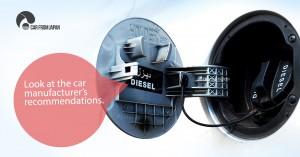
Quite often, the clearest and most direct way to know the right fuel to use for your car is to read what is written in the vehicle owner’s manual.
Evaluate diesel or unleaded fuel options.
“But my car didn’t come with a vehicle owner’s manual” you must be saying. No problem. Most cars sold on www.carfromjapan.com accept either diesel fuel or conventional unleaded fuel.
What’s tricky is that some consumer cars, including compact cars and sedans from the Volkswagen brand take diesel fuel. Understand which one your vehicle runs on before filling up since making the wrong choice can be dangerous.
Understand the need for specialty or high-performance cars
Most cars simply take the lowest grade and lowest octane fuel at the pumps, this is called 87 octane fuel.
The exceptions though are usually either specialty cars with high-class construction and engines or high performance cars that need a higher octane fuel to help resist engine knocking because of a hotter combustion chamber.
Figure out your car or truck’s engineering or have a qualified professional do that for you and you’ll know which type of fuel it should use.
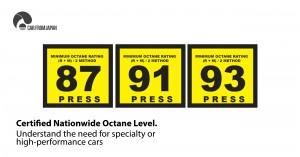
Consider the age and condition of your vehicle
Car mechanics sometimes recommend that drivers of older, ailing cars switch to higher octane as a possible way to keep the car running longer.
This is not a general recommendation and it only applies to specific cases so don’t do it unless you have solid evidence from a qualified mechanic that this will improve your engine.
Pay close attention to your engine while driving
Even if your manual calls for lower grade fuel, always pay close attention to the sounds that your engine makes.
If you start to notice or hear your engine making pinging or knocking sounds, try switching to higher grade fuel.
If that gets rid of the noises, only fill your car with that grade of fuel to avoid any problems in the future.
Understand the grade of fuel your car needs
Have a qualified mechanic check your car and advise on which grade of fuel you should put in your car.
If a low grade fuel is used in an engine that produces relatively high levels of heat and pressure, you can actually hear it malfunction, as the engine begins to ping and knock.
This is the sound of many tiny explosions per second, all taking place at the wrong time and causing real engine problems.
Over time, this knocking or pinging can damage vital components and drastically affect changes in the engine performance.
So before you put unleaded fuel in your car, find out if your car should actually be running on this grade of fuel.
Know the difference between the different grades of fuel
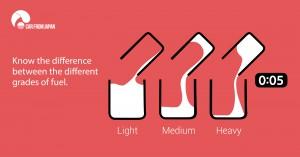
You can pump fuel straight from a container and into your fuel tank using just a little bit of pressure. But getting it to ‘explode’ in your engine, in the right place, at the right time, takes a little doing.
In order to explode correctly, the heat and pressure have to combine with fuel and air, in just the right way and at just the right time. If any part of the equation is disturbed, the fuel won’t ignite correctly.
Because every engine is different and because engines change over time, fuel stations typically provide 3 grades of fuel. These grades have absolutely nothing to do with quality.
There is 87 grade fuel and 89 or 93 grade fuel. None is necessarily of lower quality than the other. You just need to find out from a qualified mechanic which fuel grade is suitable for your car.
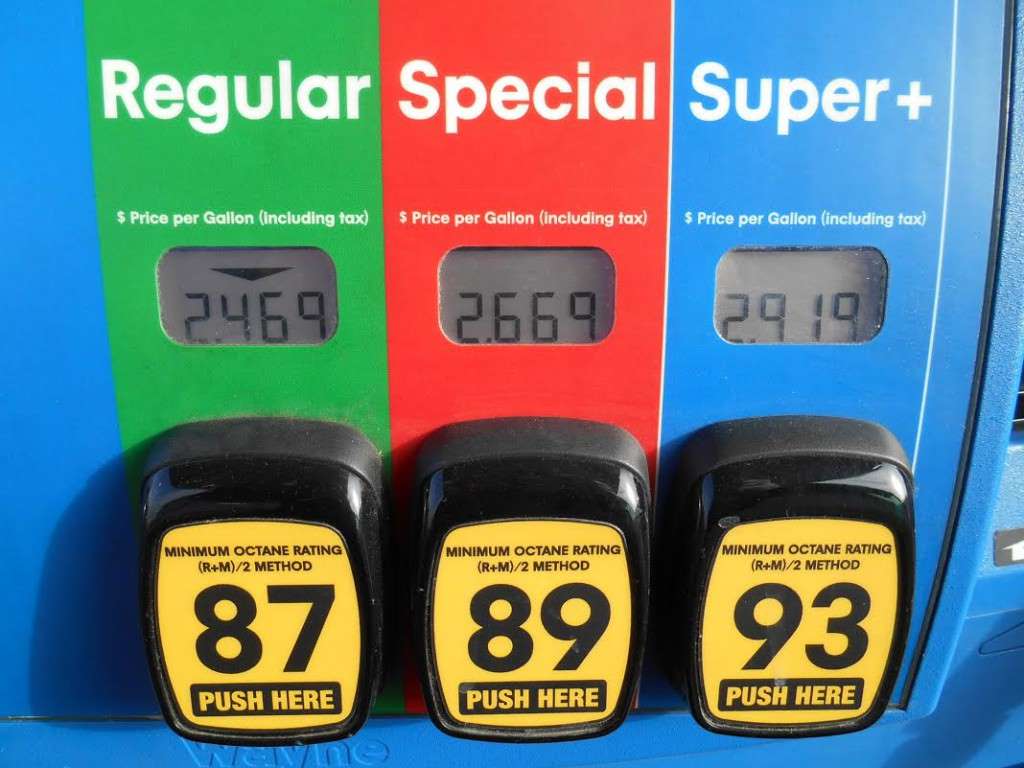
FAQs
-
Is it okay to switch between different fuel types, like from regular to premium or vice versa?
Most modern cars are designed to handle occasional fuel type switches without issues. However, consult your car’s manual and consider your driving habits before making frequent changes.
-
Are there any benefits to using premium fuel in a non-high-performance car?
Using premium fuel in a car that doesn’t require it typically won’t provide any noticeable benefits in terms of performance or fuel efficiency. Stick to the recommended fuel type.
-
What are the potential consequences of using the wrong type of fuel in my car?
Using the wrong fuel type can lead to decreased engine performance, reduced fuel efficiency, and potential long-term damage to your engine. Always use the recommended fuel type.
-
Is ethanol-blended gasoline suitable for all cars?
Most cars can run on gasoline with some ethanol content (E10), but check your car’s compatibility before using higher ethanol blends like E15 or E85, as they may require modifications.
-
Should I consider alternative fuels like diesel, propane, or natural gas for my car?
Alternative fuels can be a viable option depending on your driving needs and the availability of infrastructure. Research the pros and cons of each alternative fuel type and their compatibility with your vehicle.
-
How can I improve my car’s fuel efficiency regardless of the fuel type I use?
To improve fuel efficiency, maintain your car with regular tune-ups, keep tires properly inflated, avoid aggressive driving habits, and reduce unnecessary weight in your vehicle.
Final Words
Always evaluate Diesel versus Petrol (Unleaded fuel) for a car purchase. In many cases, diesel fuel simply lasts longer and provides more miles per gallon.
This may be a way to change your fuel consumption if you’re in the market for another car.
You can always treat yourself to royalty visit: www.carfromjapan.com since we give you direct and easy access to thousands of used cars from Japan at unbeatable prices. Our cars are the cheapest on the market. Get value for your money.

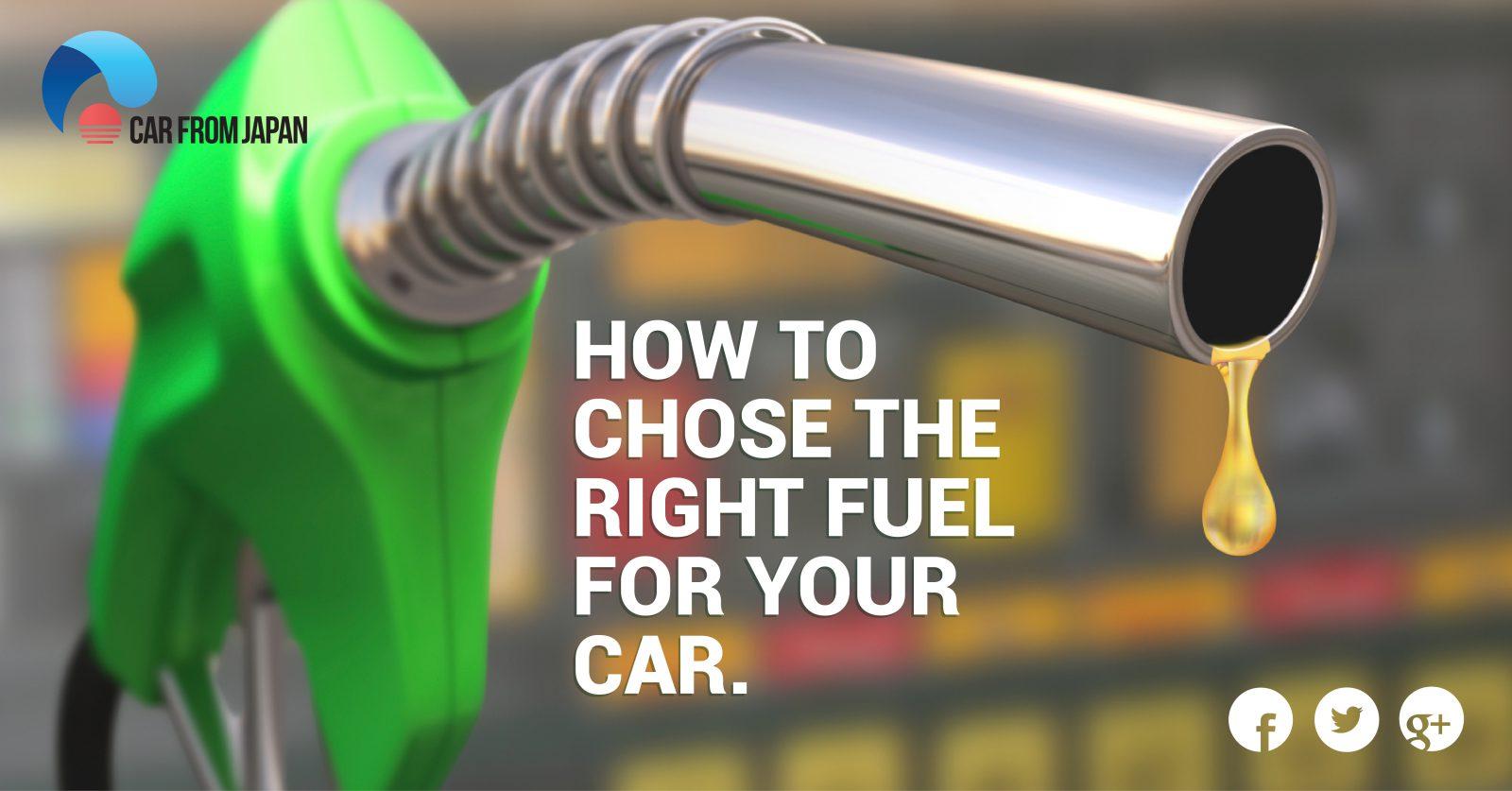


Thanks for a marvelous posting! I seriously enjoyed reading it, you could be a great author.I will always bookmark your blog and will often come back down the
road. I want to encourage that you continue your great writing,
have a nice weekend!
Arigatou. Thank you. Your comments encourage us a lot.
Thanks for sharing your thoughts on cars running smoothly.
Regards
Arigatou. Thank you. Your comments encourage us a lot.
My car japan alto high greta. I wany to no fuel type 95 or 92 octain.?